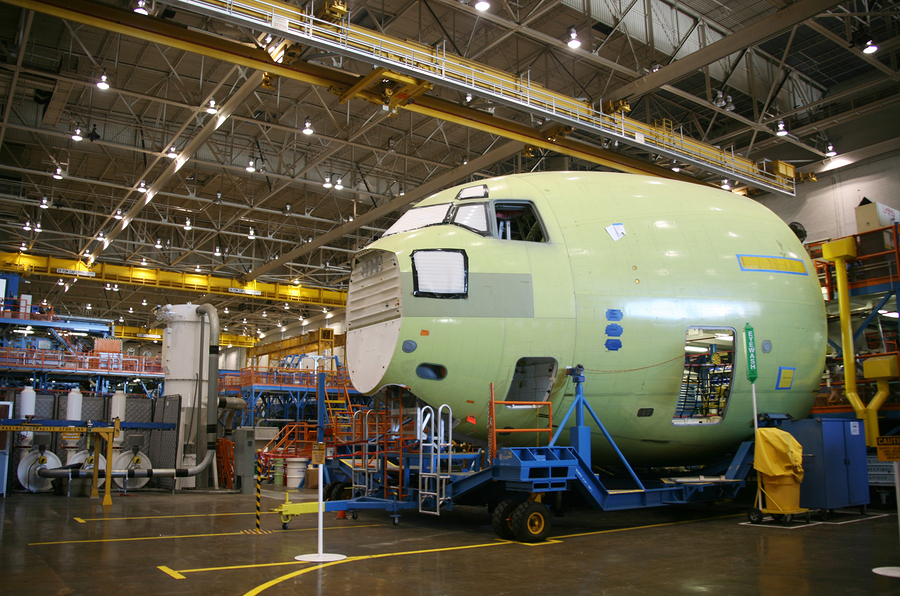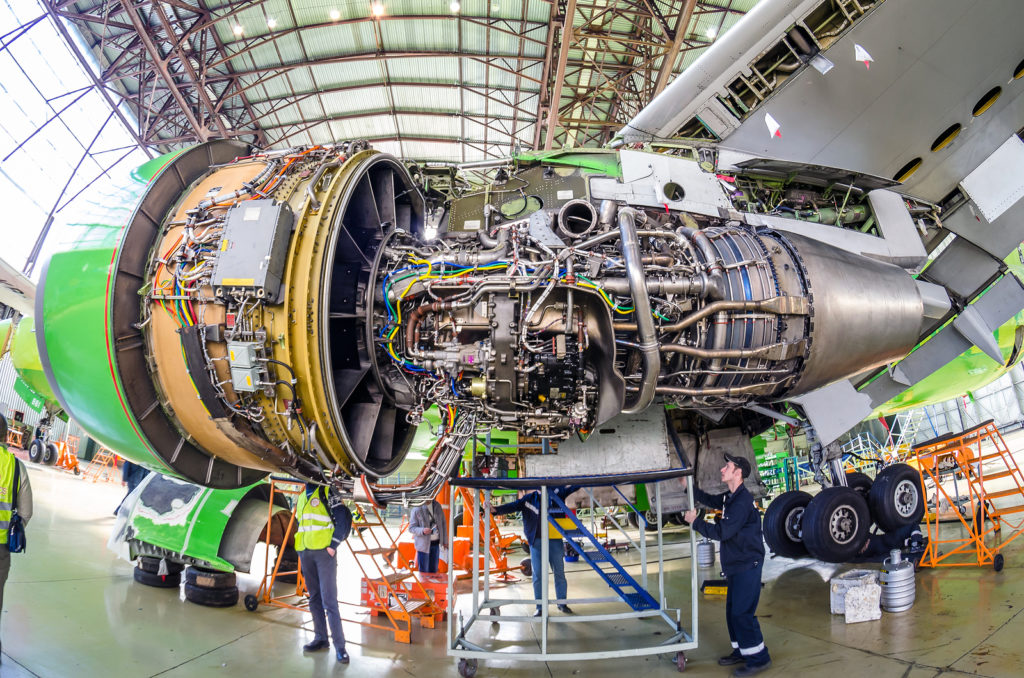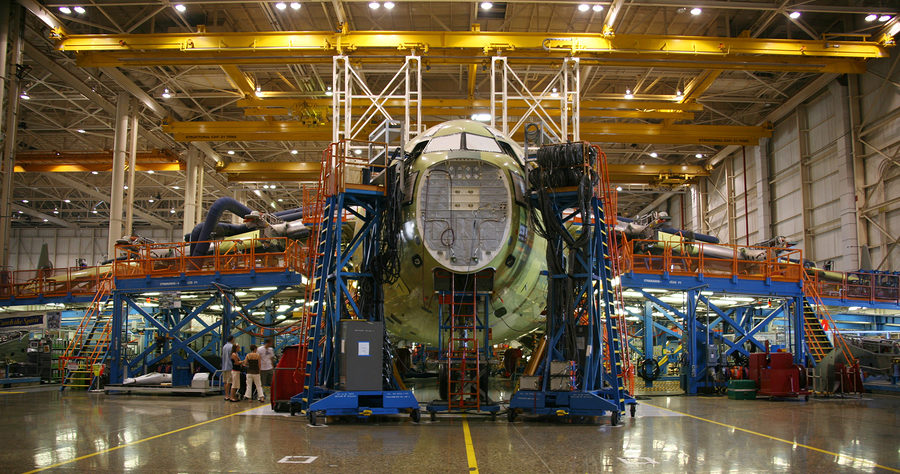Aerospace manufacturing jobs are on the rise in the U.S. This is primarily due to smart business strategies by key industry decision-makers. High demand for aerospace products and technology has resulted in major contracts and expansions for top aerospace producers in the United States. Now, aerospace manufacturers need workers of all skill levels to meet that demand.
Just how much demand? According to Dennis Muilenburg, Boeing chairman and CEO, aerospace manufacturing is one of the biggest growth sectors in the U.S. The approximately 13,000 small and midsized businesses that supply aerospace manufacturers run an $80 billion surplus and, along with larger industry players like Boeing, these companies provide the U.S. with about 1.5 million manufacturing jobs. For Boeing in particular, 90% of the company’s workforce is located in the United States and the products they manufacture account for about 80% of the company’s export sales.
International agreements lead to U.S. manufacturing growth
Boeing recently entered into a $37 billion agreement with China Aviation Suppliers Holding Company (CASC) for 300 Boeing jets with President Donald Trump and President Xi Jinping in attendance at the contract signing ceremony in Beijing. Boeing also confirmed an order from CDB Aviation, a subsidiary of the China Development Bank Financial Leasing Company, one of the world’s largest development financial institutions. CDB Aviation finalized a $7.4 billion jet deal with Boeing initiated during the Paris Air Show, and the deal pushes Boeing’s total 737 MAX orders to over 4,000 family units. Understandably, Boeing leaders will be looking for more manufacturers to fill these orders and anticipate future increases in aerospace technology demand.
Additional aerospace manufacturing advances
 Many other aerospace manufacturers continue to increase sales and hire more manufacturers as well. Pratt & Whitney Autoair created over 700 positions and invested $100 million in Lansing, Michigan, facilities in its three years in the city. Pratt & Whitney Autoair now has four other company sites in Lansing, and the engines the company manufactures are used in 25% of global passenger airplanes. The company also supplies military engines to 30 different countries. As time goes on, this business is likely to continue to grow and provide jobs for American manufacturers.
Many other aerospace manufacturers continue to increase sales and hire more manufacturers as well. Pratt & Whitney Autoair created over 700 positions and invested $100 million in Lansing, Michigan, facilities in its three years in the city. Pratt & Whitney Autoair now has four other company sites in Lansing, and the engines the company manufactures are used in 25% of global passenger airplanes. The company also supplies military engines to 30 different countries. As time goes on, this business is likely to continue to grow and provide jobs for American manufacturers.
Ball Corporation is also showing signs it will influence the aerospace manufacturing industry in the next few years. In April 2017, those at Ball Corporation began construction to expand its Aerospace Manufacturing Center in Westminster, Colorado, and is due for completion in Spring 2019. Ball Corporation helps give Colorado the status of the second largest aerospace economy in the U.S. and will likely impact aerospace manufacturing industry hiring in the years to come.
Joining the aerospace manufacturing ranks
Who will staff these expanded facilities and allow aerospace competitors to meet growing demand? Job seekers can enter the aerospace industry with little to no experience or education as material handlers or guards. With a foot in the door, they can later obtain the education and training they need to move into the higher-level positions they seek. For those looking to increase earning potential more quickly, however, it can be beneficial to enroll in manufacturing programs through vocational or technical schools.

Throughout November, Boeing leaders have been and will be hosting job fairs to hire their newest manufacturing professionals. They are specifically looking for veterans recently separated from the military as well as recent high school and community college graduates with academic manufacturing program credentials. Opportunities range from assemblers and hand finishers to functional testers, painters, and many other positions. Boeing hiring managers are also seeking workers looking for career changes with an emphasis on those whose skills are easily transferrable. These include: construction workers, automotive mechanics, auto-body repair specialists, electricians, precision machinists, welders, aircraft mechanics, among others.
As the aerospace industry continues moving forward, it creates a heightened need for American manufacturers. Those with industry experience or knowledge may be wise to take advantage of the aerospace opportunities to come.
